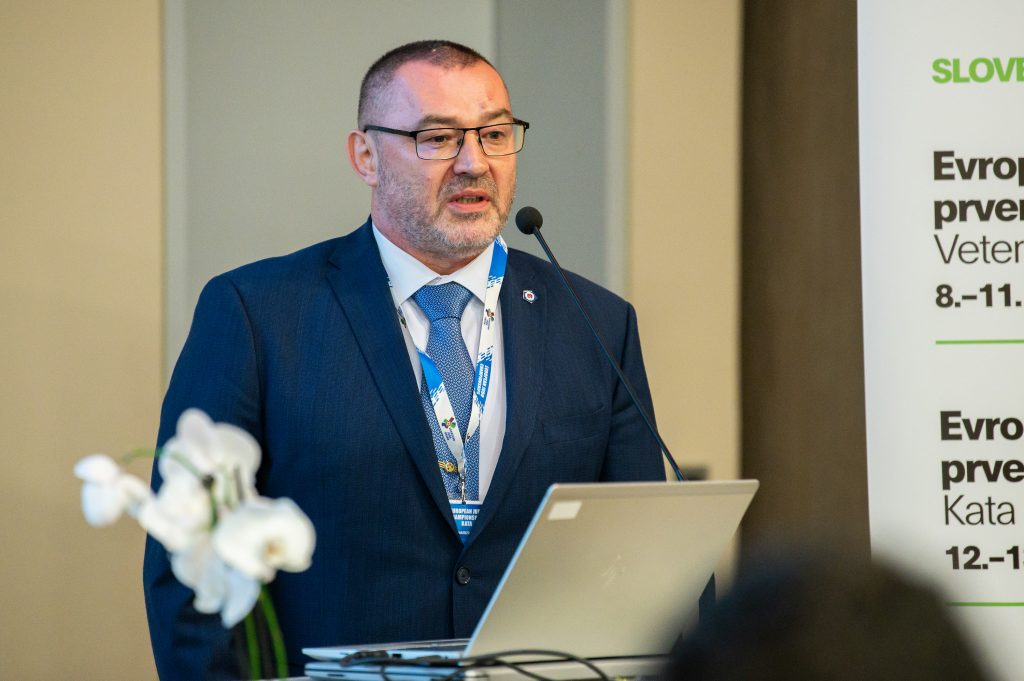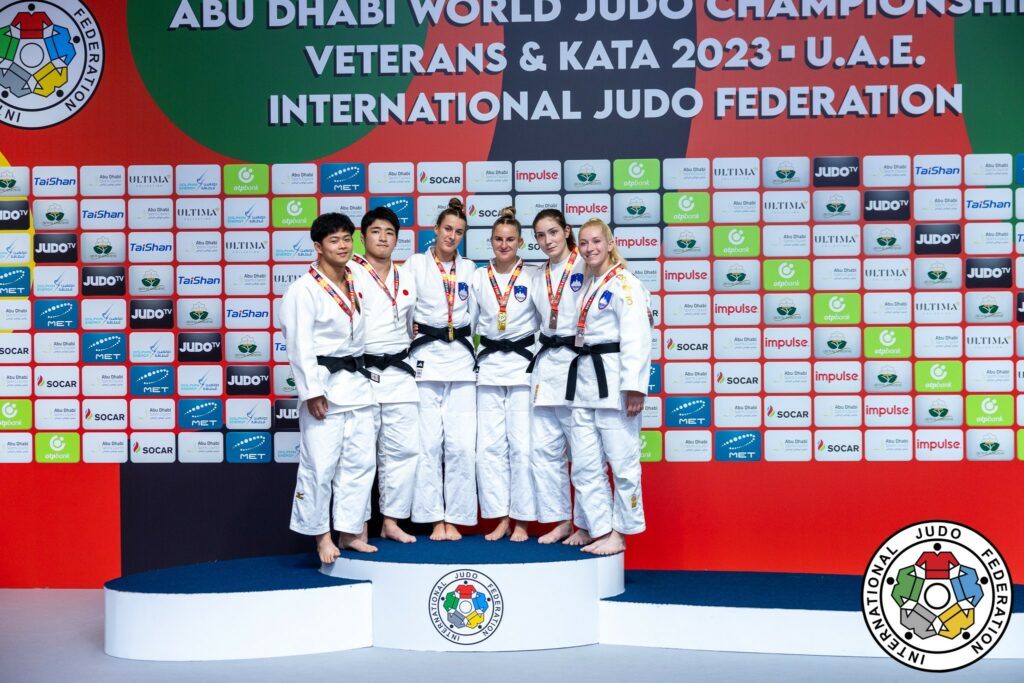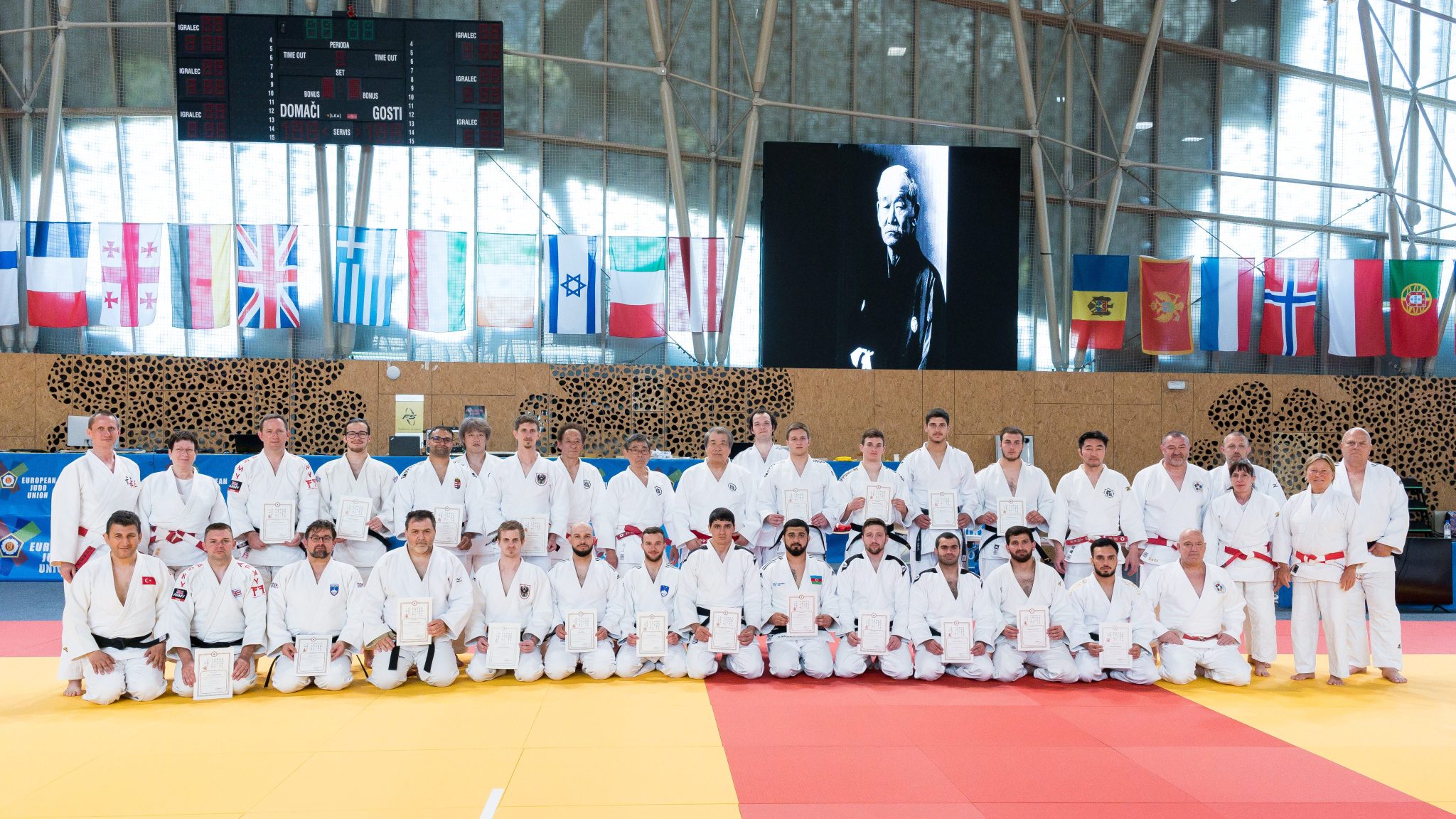Following a successful Europeans back in June, the kata family have gone to Abu-Dhabi to shine at the World Judo Championships Kata 2023. The total of 284 judoka from 35 nations headed to the Emirates to showcase their best forms. Whilst Japan took most victories, Europe managed to grasp a spot at each end every medal ceremony. This year, we have seen plenty enhancements around this sector and after such a successful event, it was time to reach out to Head Kata Commissioner of EJU, Mr. Slaviša Bradić.

What is your overall view of the World Judo Championships Kata 2023?
The World Kata Championship was a record number of competitors, which is great. Definitely, the development of kata competition is on the rise, but we as a committee are responsible for the popularization and expansion of kata culture. The fact that an increasing number of countries are receiving medals is pleasing, which is an indicator of the expansion of quality. My opinion, is that we have a big job ahead of us in the formation of Kata commissions in the countries of the world, clearly defining their roles and helping them become independent in their work. In this way, we can create a large base of practitioners, which is the basis for preservation and development, because we must not forget that there are countries that have national teams and behind them there are very few or no other kata practitioners. This situation is potentially dangerous because it can easily happen that kata completely disappears in that country.

Based on what you saw in Abu-Dhabi, where does Europe stand at the moment?
The CARE system that was used in Abu Dhabi was introduced for the first time this year at the European Kata Championship in Slovenia, which we are very proud of because it is a big step in the development of the quality of judging. We are also proud of our member countries, which regularly achieve excellent results in senior competition, but also of the young generations who are coming, as is the case with Slovenia and Italy in junior age groups. We must not forget that young people are the future of every society, including the judo community. According to everything shown, it is definite that we can expect a good future in the next kata generations.
Summary of this year? Is there anything else left on the agenda?
This year was really good for the Kata Commission because several big steps in development were made primarily due to the understanding of EJU President Mr. Toth. This year we have the EJU congress in Belgrade, where we will present our plans for next year in detail. The introduction of Kata competitions in EUSA competitions is a great progress and an additional opportunity for our work with the student population.
I would definitely highlight the Children’s Kata Festival, the EJU Kata tour and the improvement of judging and monitoring Kata competitions with commentators. We had a great collaboration with Neil Adams in Abu Dhabi and we created a platform for the development of commentary and video tracking of Kata competitions. This will surely bring and educate a wider audience about Kata competitions.
Also, in the December, we will help the Judo Federation of Bosnia and Herzegovina in organizing the first national Kata Championship and seminars for coaches and kata judges. The Kata tour begins with the introduction of a ranking list for competitors and Kata judges, which will surely affect the development of quality. It should also be noted that we have regulated and initiated kata competitions and activities in the sphere of Adapted judo, which gives additional inclusive value to our activities.
What are you looking forward to the most next year?
I am most looking forward to working with the commission, which has a very positive energy and a large number of ideas. Starting a Judo kata festival for children with primarily educational and entertainment goals, the EJU Kata tour and the development of the popularization and viewership of kata competitions is certainly something that will enrich our judo community in Europe. Starting projects with children and encouraging cooperation between countries in working with young people in the area of kata certainly makes me happy.
Author: Szandra Szogedi




